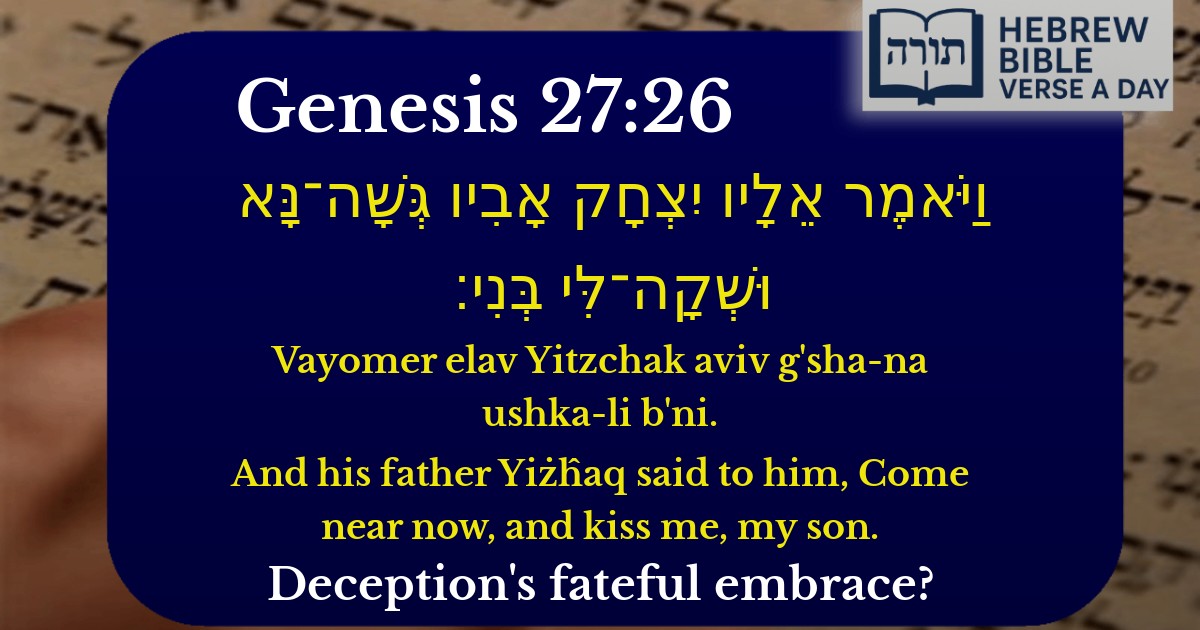Join Our Newsletter To Be Informed When New Videos Are Posted
Join the thousands of fellow Studends who rely on our videos to learn how to read the bible in Hebrew for free!
Hebrew Text
וַיֹּאמֶר אֵלָיו יִצְחָק אָבִיו גְּשָׁה־נָּא וּשְׁקָה־לִּי בְּנִי׃
English Translation
And his father Yiżĥaq said to him, Come near now, and kiss me, my son.
Transliteration
Vayomer elav Yitzchak aviv g'sha-na ushka-li b'ni.
Hebrew Leining Text
וַיֹּ֥אמֶר אֵלָ֖יו יִצְחָ֣ק אָבִ֑יו גְּשָׁה־נָּ֥א וּשְׁקָה־לִּ֖י בְּנִֽי׃
וַיֹּ֥אמֶר אֵלָ֖יו יִצְחָ֣ק אָבִ֑יו גְּשָׁה־נָּ֥א וּשְׁקָה־לִּ֖י בְּנִֽי׃
🎵 Listen to leining
Parasha Commentary
📚 Talmud Citations
This verse is not quoted in the Talmud.


Context of the Verse
The verse (Bereshit 27:26) occurs during the pivotal moment when Yitzchak (Isaac) prepares to bless Yaakov (Jacob), believing him to be Esav (Esau). This scene is laden with deep spiritual and emotional significance, as Yitzchak, though physically blind, seeks to confirm the identity of his son through touch and smell before bestowing the blessings.
Rashi's Commentary
Rashi explains that Yitzchak's instruction, "Come near now, and kiss me, my son", was not merely an expression of affection but a test. Yitzchak sensed something unusual—Yaakov did not smell like Esav, who was associated with the scent of the field (symbolizing worldly pursuits). However, when Yaakov approached, Yitzchak detected the fragrance of Gan Eden (the Garden of Eden), which clung to Yaakov due to his righteous nature (Rashi on Bereshit 27:27). This confirmed to Yitzchak that the one before him was worthy of the blessings.
Midrashic Insights
Rambam's Perspective
While Rambam (Maimonides) does not comment directly on this verse, his principles in Moreh Nevuchim (Guide for the Perplexed) emphasize that biblical narratives often convey deeper philosophical truths. Here, the kiss symbolizes the transfer of wisdom and covenantal continuity, reinforcing that Yaakov—not Esav—was the rightful heir to Avraham's legacy.
Halachic and Ethical Lessons